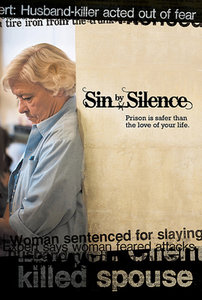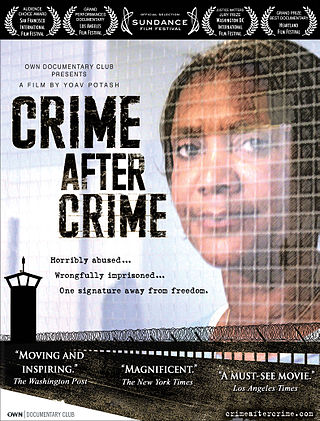
Des Moines is the capital and most populous city in the U.S. state of Iowa. It is the county seat of Polk County with parts extending into Warren County. It was incorporated on September 22, 1851, as Fort Des Moines, which was shortened to "Des Moines" in 1857. It is located on, and named after, the Des Moines River, which likely was adapted from the early French name, Rivière des Moines, meaning "River of the Monks". The city's population was 214,133 as of the 2020 census. The six-county metropolitan area is ranked 81st in terms of population in the United States, with 709,466 residents according to the 2020 census by the United States Census Bureau, and is the largest metropolitan area fully located within the state.

Grinnell is a city in Poweshiek County, Iowa, United States. The population was 9,564 at the time of the 2020 census. It is best known for being the home of Grinnell College, as well as being the location of the Merchants' National Bank building, designed by famous architect Louis Sullivan.
Sabiha Sumar is a Pakistani filmmaker and producer. She is best known for her independent documentary films. Her first feature-length film was Khamosh Pani , released in 2003. She is known for exploring themes of gender, religion, patriarchy and fundamentalism in Pakistan.

The Diocese of Davenport is a Latin Church ecclesiastical jurisdiction, or diocese, of the Catholic Church for the southeastern quarter of the state of Iowa in the United States.

The Diocese of Des Moines is a Latin Church ecclesiastical territory, or diocese, of the Catholic Church in southwestern Iowa in the United States. It is a suffragan see in the ecclesiastical province of the metropolitan Archdiocese of Dubuque. The see city for the diocese is Des Moines. The cathedral parish for the diocese is St. Ambrose.
The Iowa State Penitentiary (ISP) is an Iowa Department of Corrections maximum security prison for men located in the Lee County, Iowa, community of Fort Madison. This facility should not be confused with the Historical Iowa State Penitentiary, which was shut down in 2015 after being open for 175 years. The HISP itself was a 550-person maximum security unit. Also on the complex was a John Bennett Correctional Center - a 169-person medium security unit. The HISP included two minimum-security farms with about 170 people who were located within a few miles of the main complex. The complex also had a ten-person multiple care unit, and a 120-bed special-needs unit for prisoners with mental illness or other diseases that require special medical care. In total, there were about 950 inmates and 510 staff members.

WHO is a commercial AM radio station in Des Moines, Iowa, United States. The station is owned by iHeartMedia and carries a conservative news/talk radio format, with studios on Grand Avenue in Des Moines.

The Des Moines metropolitan area, officially known as the Des Moines–West Des Moines, IA Metropolitan Statistical Area (MSA) is located at the confluence of the Des Moines River and the Raccoon River. Des Moines serves as the capital of the U.S. state of Iowa. The metro area consists of six counties in central Iowa: Polk, Dallas, Warren, Madison, Guthrie, and Jasper. The Des Moines–Ames–West Des Moines Combined Statistical Area (CSA) encompasses the separate metropolitan area of Ames, and the separate micropolitan areas of Pella, Boone and Oskaloosa. The Des Moines area is a fast-growing metro area.

Sin by Silence is a domestic violence documentary film by Olivia Klaus that offers a unique gateway into the lives of women who are the tragedies living worst-case scenarios and survivors - women who have killed their abusive husbands. Based on the first inmate-initiated and led support group in the entire United States prison system, the film reveals the history and stories of the members of the group Convicted Women Against Abuse created by inmate Brenda Clubine in 1989. By following five women's abusive experiences that led to their incarceration, the film take viewers on their journeys from victim to survivors, reveals the history of the Battered Women Syndrome in the state of California, and shatters misconceptions. This documentary is a production of Quiet Little Place Productions.

Crime After Crime is a 2011 award-winning documentary film directed by Yoav Potash about the case of Deborah Peagler, an incarcerated victim of domestic violence whose case was taken up by pro bono attorneys through The California Habeas Project.
Up the Ridge is a 2006 documentary film by Appalshop filmmakers Nick Szuberla and Amelia Kirby revealing injustices in the American prison system. It especially highlights prisoners sent from urban areas to be incarcerated in rural supermax prisons, such as Red Onion State Prison and Wallens Ridge State Prison. The film delves into issues of parole reform, prisoner abuse, and prisoner suicide. Up the Ridge was created as a part of the Thousand Kites project, a nonprofit organization aimed at exacting prison reform through narrative means.
Kristina Joy Fetters was an Iowa woman who was convicted of the murder of her 73-year-old great-aunt, Arlene Klehm, on October 25, 1994, when she was 14 years old. At age 15, Fetters became the youngest woman in Iowa sentenced to life in prison without parole on December 18, 1995. Following the 2012 Supreme Court decision of Miller v. Alabama, which declared mandatory life sentences for juvenile offenders to be unconstitutional, Fetters became the first inmate in Iowa to be re-sentenced in November 2013. The following month, she was recommended for compassionate parole due to a prognosis of inoperable stage-four breast cancer, and she was released to a hospice care center in Des Moines, Iowa in December 2013. She succumbed to her cancer in July 2014, at age 34.
I Was A Teenage Feminist is an documentary film directed by Therese Shechter, produced by UpFront Productions and distributed by Women Make Movies. The title is a play on that of the 1957 horror movie, I Was a Teenage Werewolf. The film explores the marked discomfort among many young, progressive women to identify themselves as feminists and how that discomfort came to be. Through personal narrative as well as interviews with feminist icons and everyday women and men, Shechter's film documents a complex, multi-generational look at feminist identity in today's world. The film had its television premiere on March 8, 2005 Canada's W Network, and it won Best Film at the National Council of Jewish Women Film Festival and Special Mention at the Karachi International Film Festival in 2006.

Cassie Jaye is an American film director, best known for directing the 2016 documentary film The Red Pill about the men's rights movement.
Irene Lusztig is a British-American nonfiction filmmaker and artist. Her work explores historical memory, archival materials, communism and post-communism, as well as feminist historiography.

Sue Hettmansperger is an American artist known for paintings and collages that work across the spectrum of modernist abstraction and representational imagery. Her work explores the interconnectedness of human, botanical and inorganic systems, scientific concepts and ecological concerns. She has been awarded Guggenheim and National Endowment for the Arts fellowships and her work belongs to the public collections of the Metropolitan Museum of Art, Art Institute of Chicago and Des Moines Art Center, among other institutions. She lives and works in Iowa City and is Professor Emerita of Art at the University of Iowa.

Elizabeth Laetitia Moon Conard was an American college instructor, politician, community leader and activist, based in Iowa. She taught sociology and economics at Grinnell College, and ran for governor of Iowa in 1932.
Donald Arthur Piper is an American murderer and suspected serial killer convicted of killing two women in hotels around West Des Moines and Clive, Iowa in 1993 and 1997, but is considered a suspect in four other killings. For his confirmed crimes, Piper was convicted and sentenced to two life terms.
The Julien Dubuque International Film festival (JDIFF) is an annual film festival held in Dubuque, Iowa, United States for four days in April. The festival is named after Julien Dubuque, a French-Canadian explorer who founded the city of Dubuque. The festival was ranked in 2022 as one of the top 50 film festivals worth the submission fee by moviemaker magazine. In 2013, the magazine had listed it as one of the "25 Coolest Film Festivals".











